Showing 1–5 of 15 results
-
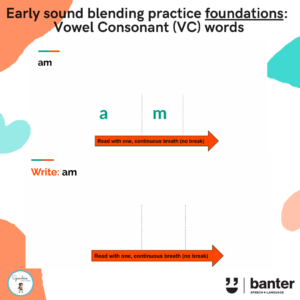
$5.99 including GST
Early phoneme blending practice using only the basic code (including word-initial vowel continuants).
Why blending? Learning to decode letters into speech sounds, and then to blend the speech sounds together to form words is a fundamental reading skill for all students in their first year of schooling.
Why the basic code? To keep things simple, we start with vowel-consonant (VC) word structures composed of high frequency letter-sound links.
-
Sale!
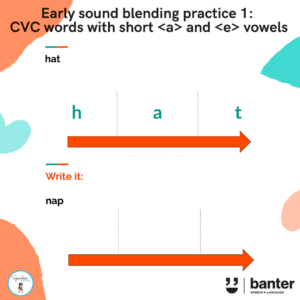
$5.99 Original price was: $5.99.$0.00Current price is: $0.00. including GST
CVC words with short <a> and <e> vowels. Early phoneme blending practice using the basic code and word initial continuants.
Why blending? Learning to decode letters into speech sounds, and then to blend the speech sounds together to form words is a fundamental reading skill for all students in their first year of schooling.
Why the basic code? To keep things simple, we start with consonant-vowel-consonant (CVC) word structures composed of high frequency letter-sound links.
-
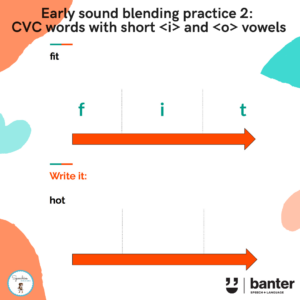
$5.99 including GST
CVC words with short <i> and <o> vowels. Early phoneme blending practice using the basic code and word initial continuants.
Why blending? Learning to decode letters into speech sounds, and then to blend the speech sounds together to form words is a fundamental reading skill for all students in their first year of schooling.
Why the basic code? To keep things simple, we start with consonant-vowel-consonant (CVC) word structures composed of high frequency letter-sound links.
-
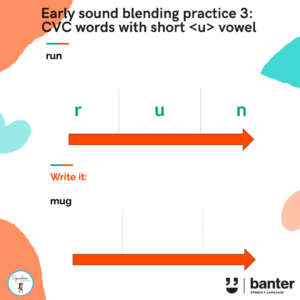
$5.99 including GST
CVC words with short <u> vowel. Early phoneme blending practice using the basic code and word initial continuants.
Why blending? Learning to decode letters into speech sounds, and then to blend the speech sounds together to form words is a fundamental reading skill for all students in their first year of schooling.
Why the basic code? To keep things simple, we start with consonant-vowel-consonant (CVC) word structures composed of high frequency letter-sound links.
-
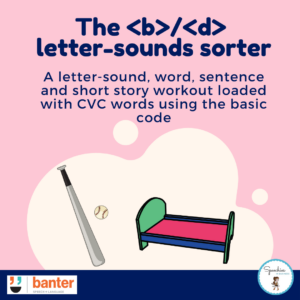
$5.99 including GST
In this 14-page pack, we introduce a couple of the best ways we have found to help children who confuse the two letters (and their sounds). After a brief <b> and <d> letter-sound recognition drill, we then jump into practising decoding the letters in words, sentences and stories.
In our preferred sequence, we target <b/d> confusion after consonant-vowel-consonant (CVC) words, and before consonant-consonant-vowel-consonant (CCVC) words or the extended code.
For this reason, our sentences are loaded with CVC words that can be decoded with knowledge of the basic code, with a just a few high frequency sight words like “the”.





